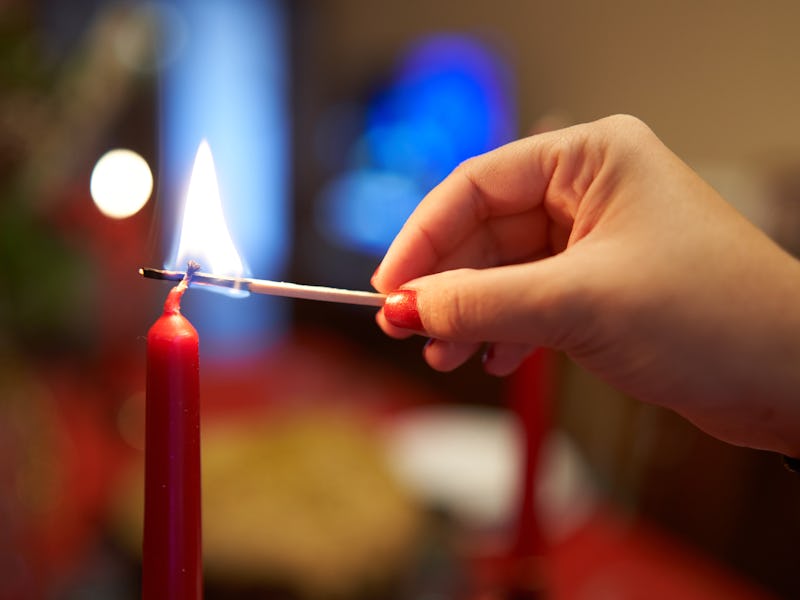Are Candles Carcinogenic? Here’s the Tough Truth
Are Clean Cotton and Sparkling Cinnamon slowly killing us all?

Post-holiday season, it’s likely you’ve accumulated some scented candles, some of which you just might regift to an acquaintance. But for all the cozy vibes and redolent scents candles offer, are they bad for our health? After all, they do involve active combustion and a release of fragrance molecules — all in an enclosed space. Here’s the lowdown on candles, health, and longevity.
Are candles bad for your health?
Technically, candles fall under the umbrella of air pollutants, emitting two types of adulterants. One is called particulate matter (PM), which comprises all airborne, breathable particles like soot. Of particular interest is PM2.5, meaning each particle is less than 2.5 micrometers in diameter. These minute pollutants are so small that once inhaled, they can embed themselves deep within your organs, contributing to inflammation.
Then there are volatile organic compounds, which are natural chemicals that can evaporate into thin air. They can also irritate the lungs and airways. Candles don’t pollute at the same scale as, say, cars, but scientists are quick to point out that burning anything indoors will result in a higher concentration of something that wasn’t there before.
“I think it would be almost impossible to not make some sort of indoor pollution with any type of candle,” says Michael Bergin, a civil and environmental engineering professor at Duke University. No matter what kind of candle you’ve got, it’s going to add something to the air around you.
How big of an effect these pollutants have on our health is another question. Currently, there are not many studies that have looked into the short or long-term health effects of burning candles. One 2014 study published in the journal Regulatory Toxicology and Pharmacology concluded that “under normal conditions of use, scented candles do not pose known health risks to the consumer.” Overall, though, there is a dearth of solid long-term epidemiological studies and mixed results from what’s available, says Jeffrey Laskin, a professor of environmental and occupational health at Rutgers University.
Researchers like Laskin note that these kinds of studies are difficult to accomplish because candles come in various types, such as paraffin, beeswax, or soy, with wicks made from hemp, cotton, and wood. The many permutations of wax and wick materials make for myriad combinations of PM composition and volatile organic compounds released. Room size and ventilation also influence PM concentration, which directly impacts associated health risks.
But experts roundly agree that higher-risk people, like those with asthma, would benefit from staying away from anything burning or scented, as this might trigger or aggravate symptoms.
Someone with asthma, according to Kymberly Gowdy, professor of internal medicine at The Ohio State University College of Medicine, may be more vulnerable to negative health impacts from less exposure than someone without asthma. For example, someone without asthma may find that burning several candles at once produces enough soot and fragrance to irritate their airways; for someone with asthma, even one candle may cause some respiratory distress.
Should I stop burning candles?
Those who always err on the side of caution may see this as a good reason to stop burning candles. Or, at least, they might want to ventilate better when they light a flame, limit the number of candles burned at once, or confine the length of time burned. A standard practice is to regularly trim candle wicks to a length of one-eighth to one-fourth to reduce soot output.
However, Gowdy would like to see more convincing epidemiological research. “I feel like the jury's still out,” she tells Inverse. She noted that the nonprofit European Candles Manufacturers Association collects research on candles’ emissions and chemistry, so that’s a good place for any up-to-date data or studies.
While you probably don’t want to gift candles to anyone with sensitive breathing, for most healthy people, it is unlikely to be even close to the worst thing you do for your health.
This article was originally published on